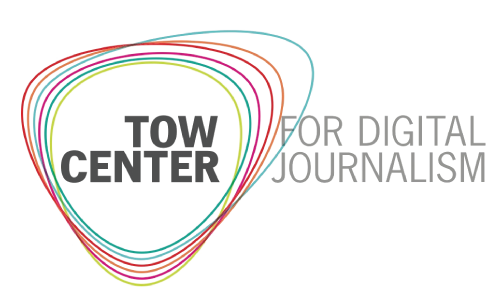If you’re reading this, you’re probably a news and politics junkie. Someone who reads multiple news sites a day, follows several news organizations on social media, and receives a few email newsletters.
Most people aren’t like this. A 2020 study found that news represents just 14 percent of Americans’ media consumption. Attention does pick up, however, during an election year. While roughly one-third of Americans closely follow the news in non-election years, 39 to 43 percent do so when there’s a presidential election, according to Gallup.
However, new research—and recent reporting about how artificial intelligence is changing the online information environment—suggests that even as people start tuning into the election, they could end up more misinformed, not less.
The reason: People have greater faith in their own abilities to “fact-check” the news than they have in the news itself. In the past year, we have published two academic studies that suggest this faith is misplaced, and that it actually leaves people more likely to believe misinformation.
People view journalism skeptically
There is a growing disconnect between how journalists see themselves and how people see journalists. Instead of perceiving journalists as watchdogs acting in the public’s best interest, people increasingly see journalists as elites who are acting in their own interests. Indeed, there’s been an explosion of research focused on news distrust over the past decade, and the consistent findings are that people increasingly feel compelled to discount the journalism they encounter because they believe it to be politically biased, economically compromised, or simply produced by out-of-touch elites. People believe journalists knowingly attempt to sensationalize the news to make more money or misrepresent the news to suit either a liberal or conservative perspective. To be sure, this research is hardly consistent–trust in news is higher in some countries than in others, for example, and some scholars have even questioned the legitimacy of a so-called “trust crisis” in journalism altogether. Yet even as scholars and journalism stakeholders debate the scale of the problem, many have devoted a great deal of resources to understanding its origins and implications, as well as finding solutions.
Last year, two of us (Nelson and Lewis) published a peer-reviewed study in New Media & Society drawing on interviews with a diverse sample of U.S. adults to understand the reasons behind people’s distrust of news and the ways in which that distrust impacts their interactions with news. Our subjects were indeed extremely cynical when it came to the news they consumed. As one interviewee said: “It’s all slanted.” Another similarly explained that, when it comes to journalism, “I’m always skeptical.”
Yet, this skepticism did not appear to lead our respondents to avoid the news. Instead of decreasing people’s time spent with news, this distrust simply increased their sense that consuming the news was just a first step in determining what was actually going on in the world around them. People described the importance of “doing their own research” to corroborate what they came across in the news they consumed so that they wouldn’t be deceived by journalists who either unintentionally or deliberately aspired to deceive them.
How did this fact-checking unfold? In the absence of faith in journalists to report the news honestly and accurately, our interviewees turned to digital platforms to help them in their own attempts at improvised fact-checking. One, for example, described turning to Google to “fact-check” the news he was watching on television in real time. “You shouldn’t take the article as gospel,” another said. “You should still do some research and determine if what they’re saying is correct.”
Unfortunately, not everyone has the skills to engage in this sort of informal fact-checking in a way that will actually lead them closer to the truth, rather than further from it. People’s own limitations are further compounded by the shortcomings of the platforms themselves. There is growing evidence that Google, for example, has become “rife with fraudulent search results” and has been “taken over by low-quality SEO spam.” The rise of generative artificial intelligence seems to be making the problem even worse.
The pitfalls of “doing your own research”
In light of these circumstances, we should not be surprised by the recent research, published in a peer-reviewed study earlier this year in Nature, revealing that people’s attempts to “fact-check” the news actually leaves them more likely to believe misinformation, rather than less.
In the paper, on which one of us (Sanderson) is a co-author, participants were recruited online for a series of five experiments in which they were asked to evaluate the veracity of popular news articles, some true and some false. In the first experiment, some users were randomly assigned to use any online search engine to evaluate news articles that had been published in the past 48 hours. The next three experiments varied the timing of the treatment and the sample of the articles. To explore the mechanism of the search effect, the final experiment combined survey and web-tracking data to identify how the quality of news sources included in search results may affect users’ belief in the misinformation being evaluated.
Across all five studies, we found that the act of searching online to evaluate news — whether it was shortly after the publication of misinformation or months later — led to a statistically significant increase in belief in misinformation. Moreover, the effect was concentrated in people whose searches returned links to low-quality sources. This points to the existence (and danger) of “data voids,” a theory suggesting that there are topics for which search engines return little credible information. These data voids are likely to arise when people search about recent stories from low-quality publishers that aren’t covered by mainstream outlets.
Why do people fall into data voids? It turns out that when participants used ineffective search strategies to evaluate misinformation, such as copying the headline of an article or the URL, they were more likely to encounter other low-quality information. This in turn leads them to higher levels of belief in that misinformation. Francesca Tripodi’s work found that conservative elites capitalize on the shortcomings of this approach to “fact-checking” by emphasizing particular terms, knowing that hunting for such terms will further lead people to get search results that can leave them misinformed.
This inadequate fact-checking, combined with the skepticism explained in the first study, further compounds people’s distrust in news. And the search engine environment is at a crossroads, with traditional link-based search results being replaced by generative AI search that summarizes (either correctly or not) other sources. The impact this will have on people’s trust in the news — as well as their ability to navigate the information environment — remains unknown.
What can individuals, technology companies, and journalists do to address the problem?
Skepticism, especially in the current environment, is understandable. People shouldn’t necessarily lose their skepticism, but they should instead equip themselves with a better “toolkit” for navigating the online environment. This could include developing richer online reasoning strategies, using tools that help people quickly identify source quality, and inoculating themselves against the techniques that misinformation producers use. Companies can similarly address this issue by further investing in strategies to ensure credibility is emphasized, either through the algorithms used to surface information (e.g., search results) or communicating credibility directly (Google has already experimented with doing this).
Finally, journalists have an opportunity to do more to persuade the public that news, by and large, does not need to be “fact-checked” in the first place. Indeed, one reason why people appear to distrust journalism so much is because they see journalists as “elites” who are attempting to manipulate the public for political or monetary gain. Journalists might consider pushing back against this characterization by more forcefully (and perhaps more creatively) embracing transparency in their work.To be sure, the evidence surrounding the efficacy of transparency in journalism is mixed to say the least; however, these findings might say less about the effectiveness of transparency than they do about the kinds of transparency that journalists can and should pursue.
For example, rather than simply describing how specific newsroom decisions unfold, publications might consider sharing information about the business side of the newsroom—perhaps sharing the average employee salary, the organization’s approach to revenue, and the ways in which the newsroom enforces its “firewall” between its editorial and business interests. Alternatively, newsrooms might emulate the BBC, which recently launched an initiative to accompany its article with “content credentials … so audiences can trust that when they see a piece of BBC content it does in fact come from the BBC.”
Taking a cue from medicine?
In another recently published study that two of us co-authored, we found that although people distrust journalism and healthcare, they trust their own doctors. As a result, the “doing your own research” trend we observed in journalism was reversed in medicine: Instead of using the internet to corroborate what their doctor said, people went to their doctor to corroborate what they read online. In other words, doctors fact-check, but journalists get fact-checked.
The upside from this study: It’s indeed possible (and arguably beneficial) for people to distrust a profession and trust a professional. We see it in medicine—we just need to figure out how to get there in journalism.




